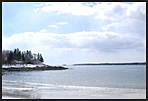
On Friday March 22, Spot and I were able to get in a long beach walk. It had been several weeks since we had been able to go no one. The day was clear, a break in a long line of March storms.
It was cold enough, and blowing hard enough at the house, that I was in my normal three layers of clothing. The beach entrance was clogged with snow, but we burst through to park. Getting out of the car, Spot immediately took off toward the path down to the beach. I followed. It was bright sun, and the glare off of the snow was fierce. As I trudged through the snow, the warmth made me wonder if I had over-dressed.
Upon reaching the edge of the path
I looked up and down to scan the area. It was a beautiful day with sun, snow, sand, and water!
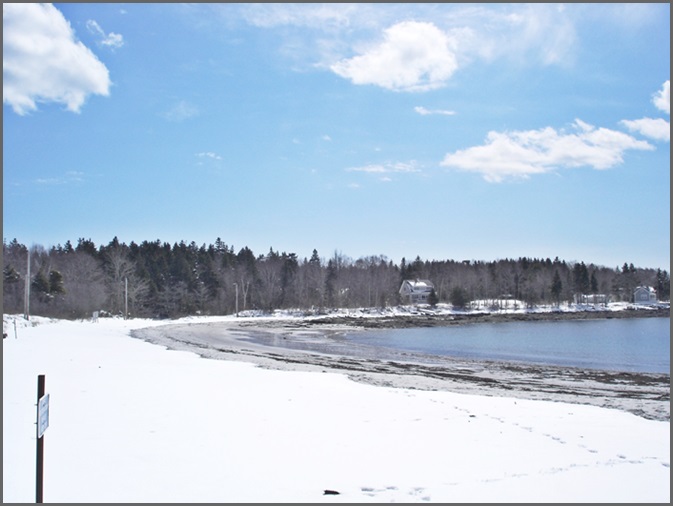
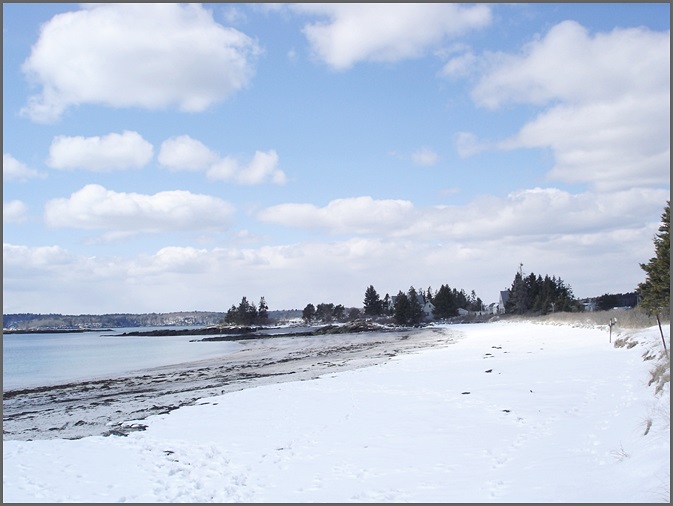
It was dead low tide, and very calm.
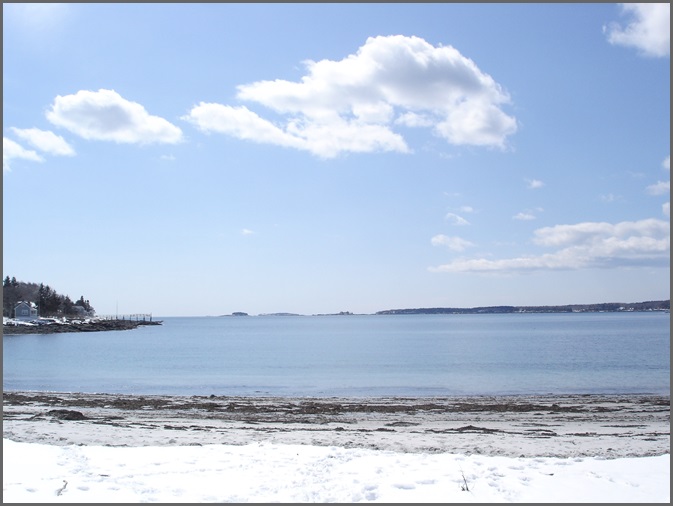
There was almost no wave action.
It was very quiet.
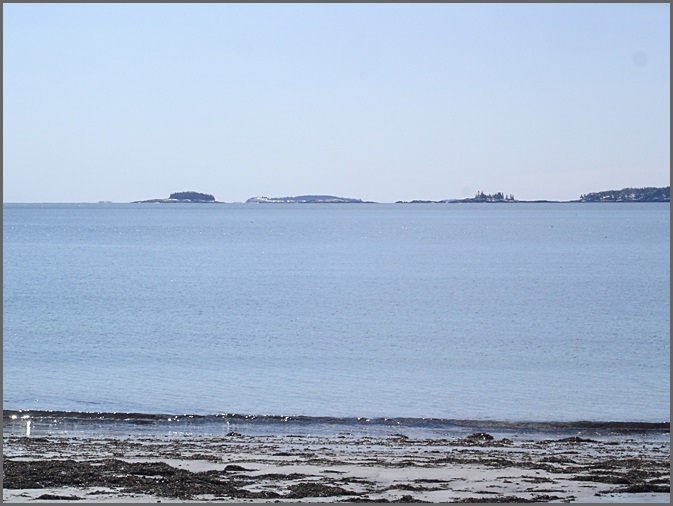
We start down the right hand side of the beach,
Spot running ahead.
Up near the edge where sand meets snow,
the sand shows the effects of water freezing and thawing.
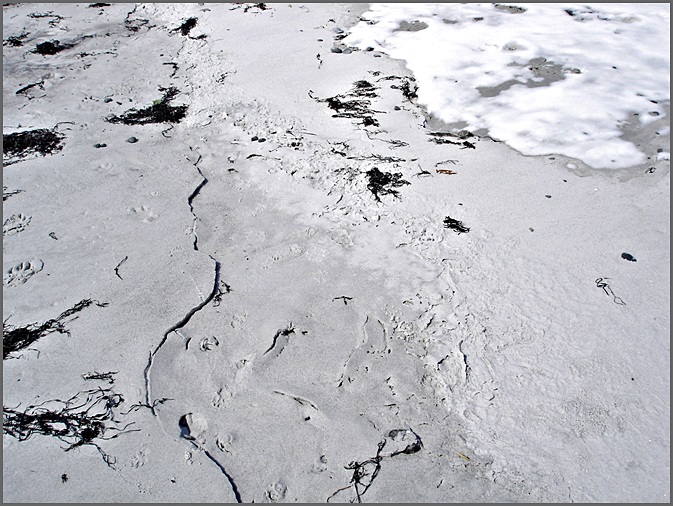
Every beach walk has its own theme- and it is not always evident until part way through the walk.
The first clue is a calcified mussel shell,
something not often seen on this beach.
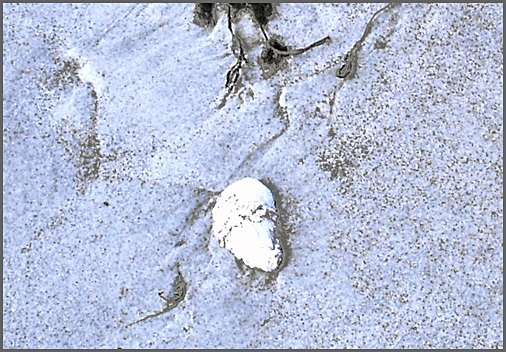
And then there was another mussel shell.
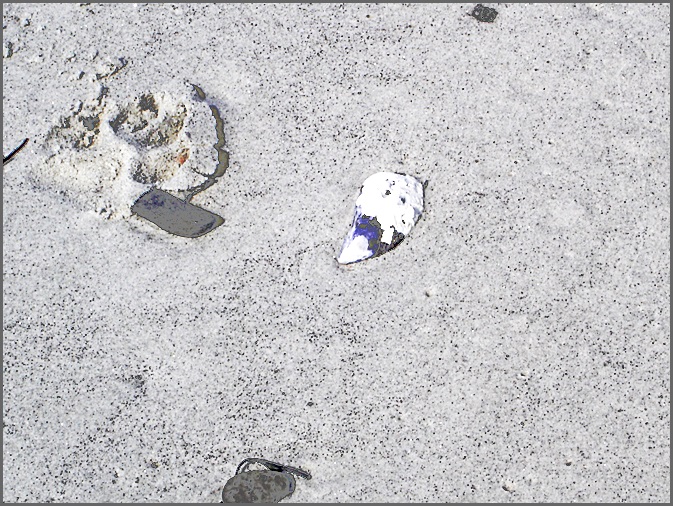
At the far end of the beach the rocks are exposed.
But it is not the super low tide that we have seen in the past-
one can not go around the rocks to the cove beyond.
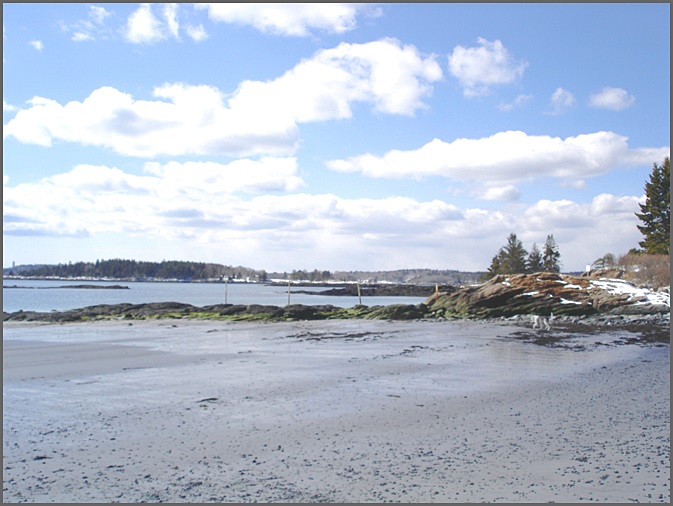
Spot goes up and over right away.
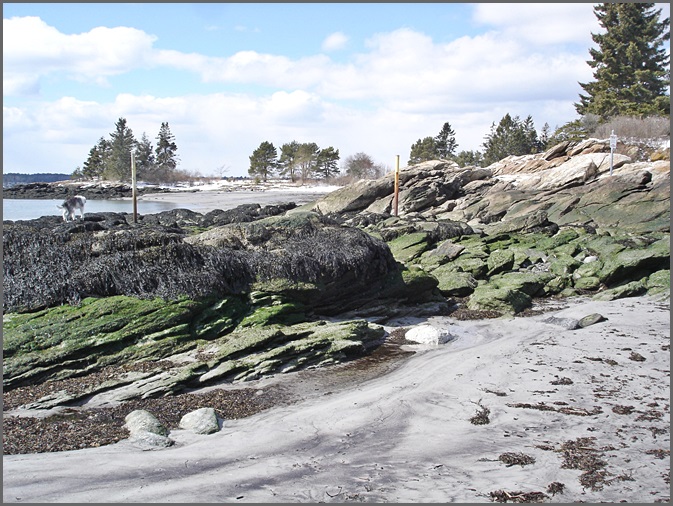
I take my time, looking at the tide pools in and around the rocks.
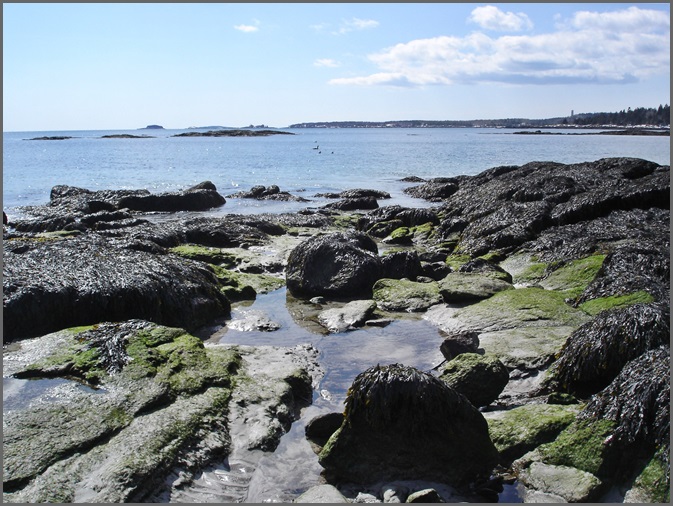
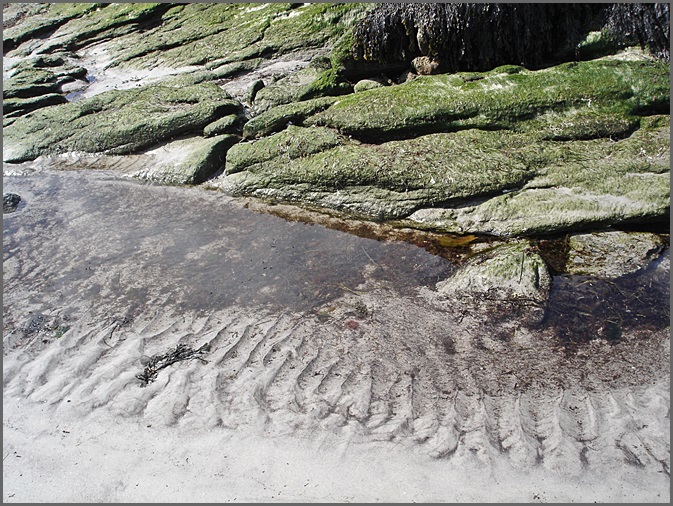
The sand patterns, made by ebbing tides, always intrigue me.
As do the patterns of the seaweed on the rocks
and hanging down into the water.
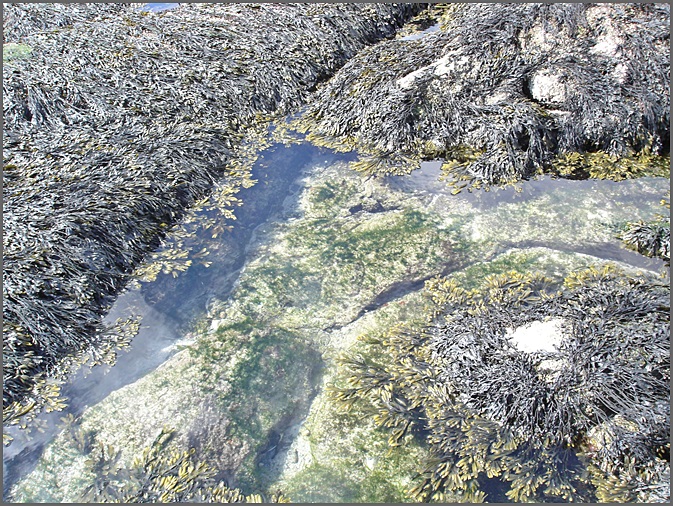
Around March 15th
the sun’s angle changes enough
so that there is what I call
sparkly water.
And suddenly, there it was.
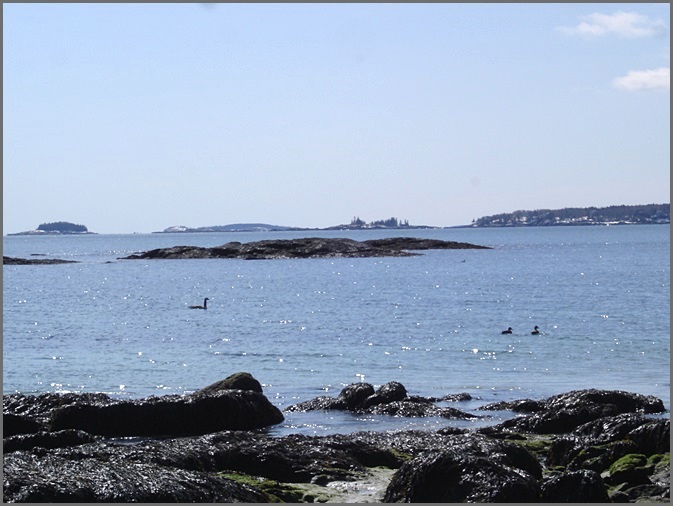
The poles at the end of the beach
are the line of demarcation between the beach and cove beyond.
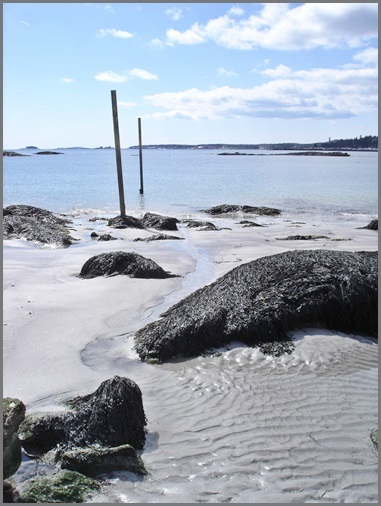
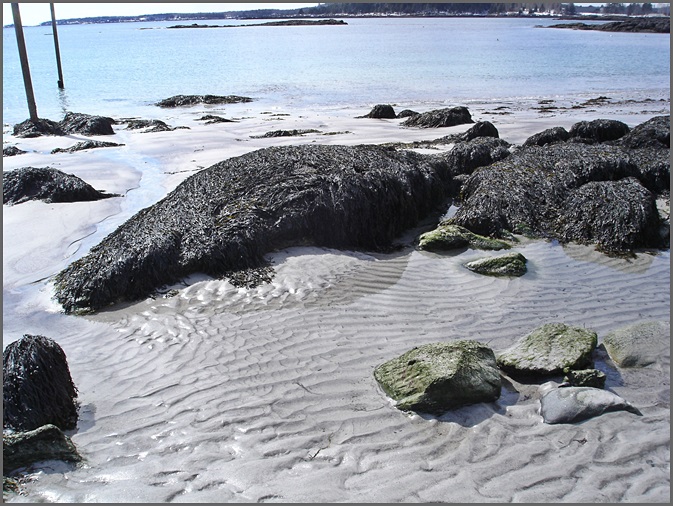
A smooth bit of sand lies just beyond the rocks.
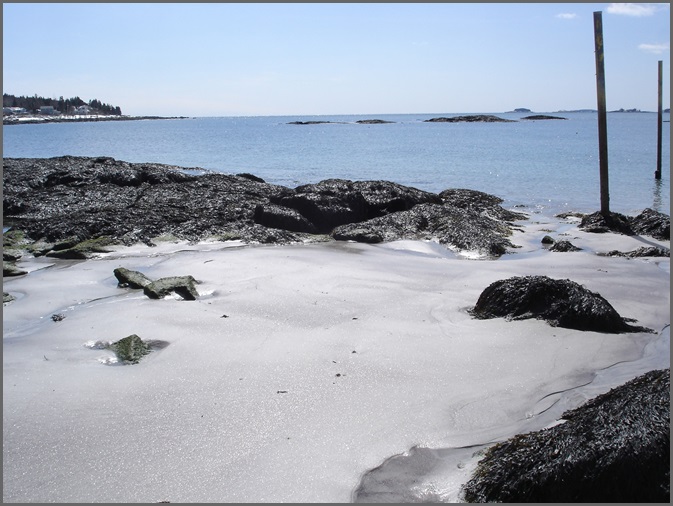
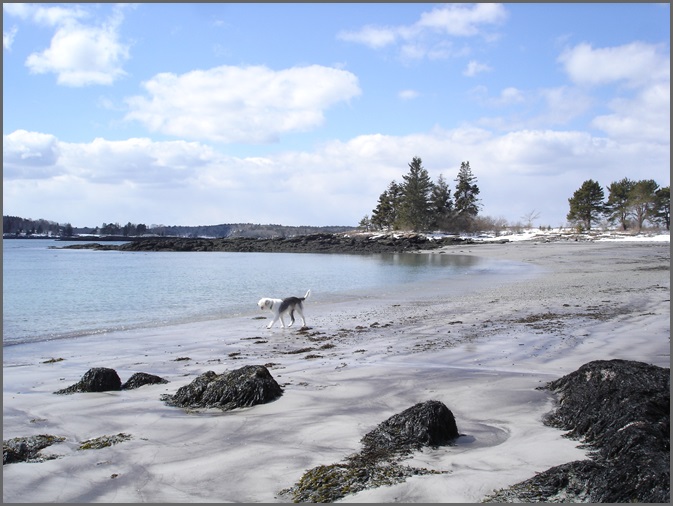
Spot, who had been running up near the snow,
at the top of the beach,
comes to see what I am doing.
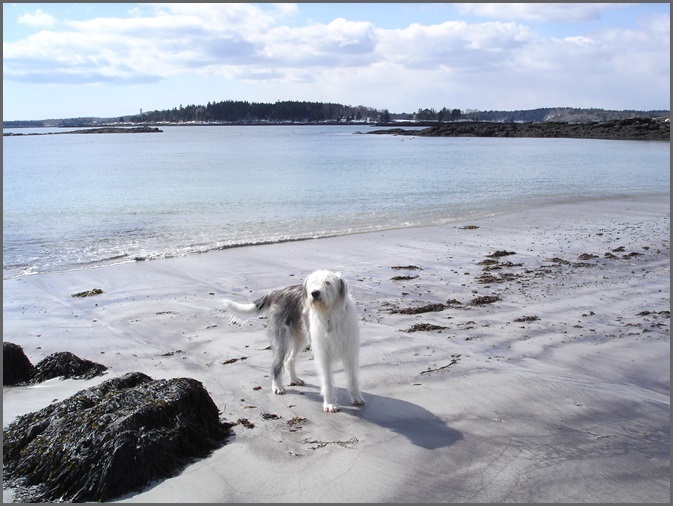
We start across the beach
to the far side of the cove.
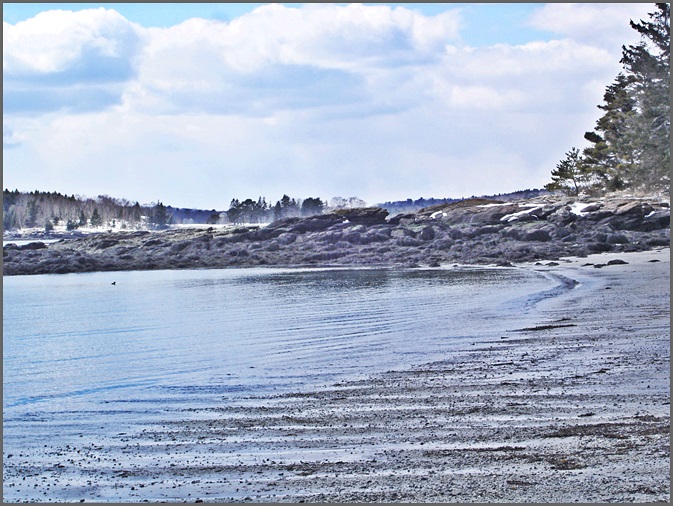
A mussel shell with
extremely purple coloring catches my eye.
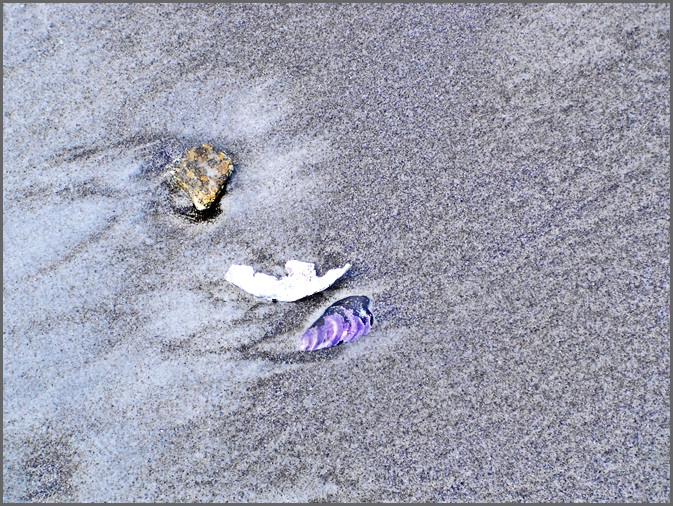
In the gravel further on
is one that is very, very blue.
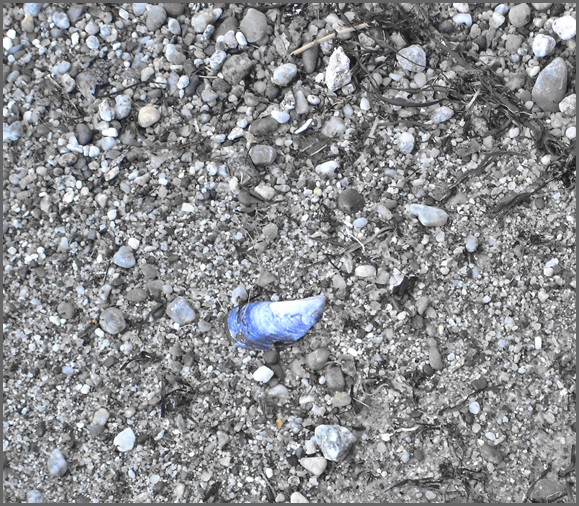
With every step
there seems to be another intriguing mussel shell.
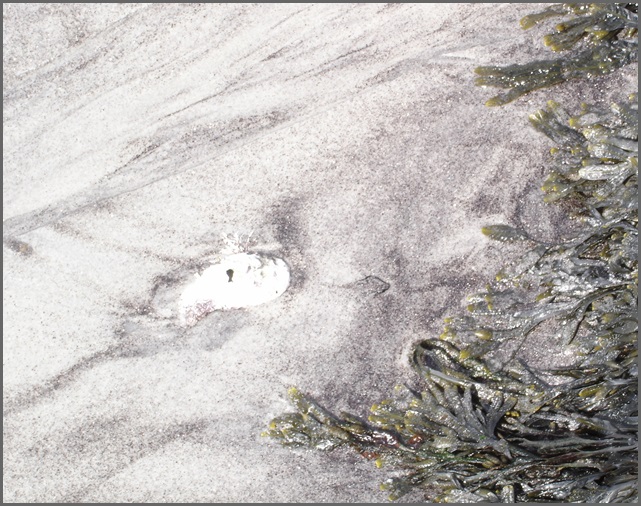
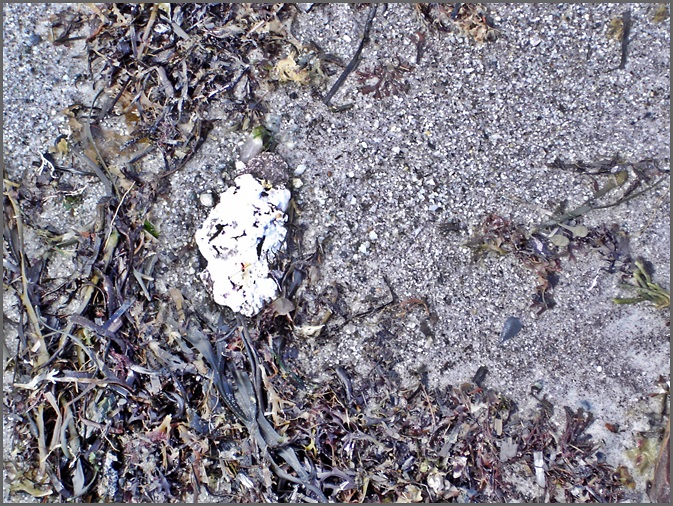
When we are two thirds of the way across the beach,
they suddenly appear in profusion.
Broken, whole, shattered pieces of them lie on the gravel.
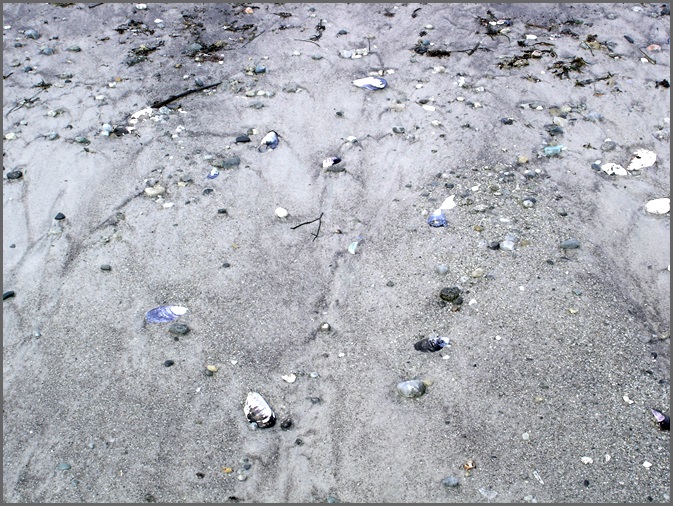
Spot thinks looking at broken shells
is a bore, and comes to urge me to continue!
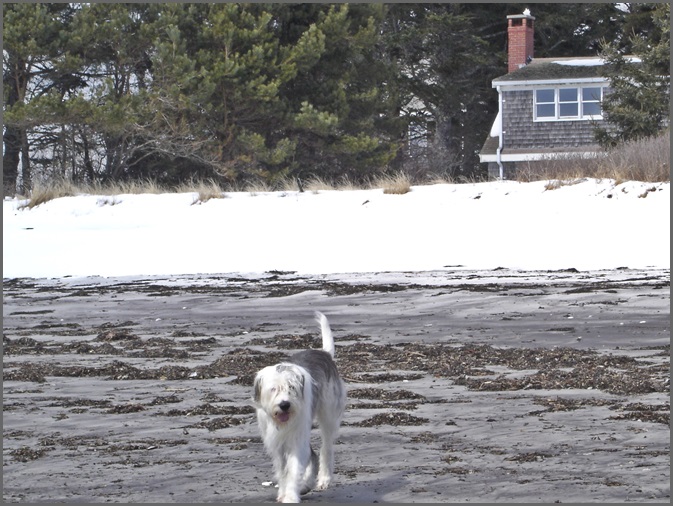
Looking out at the water
I see a flock of birds floating on the water
that is slightly ruffled by a breeze.
The water is quiet,
the sun very warm.
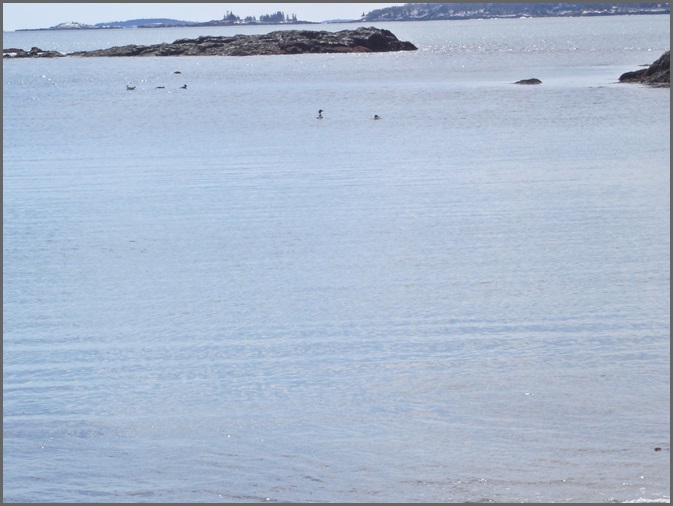
Spot goes up the seaweed covered rocks.
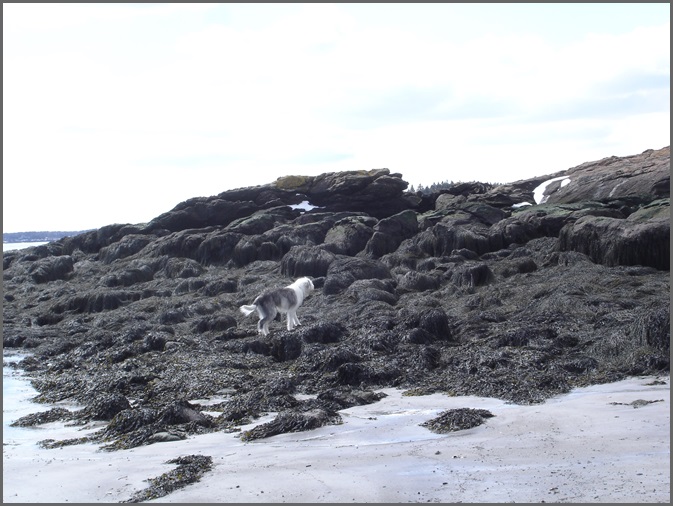
I stop to look at the seaweed patterns.
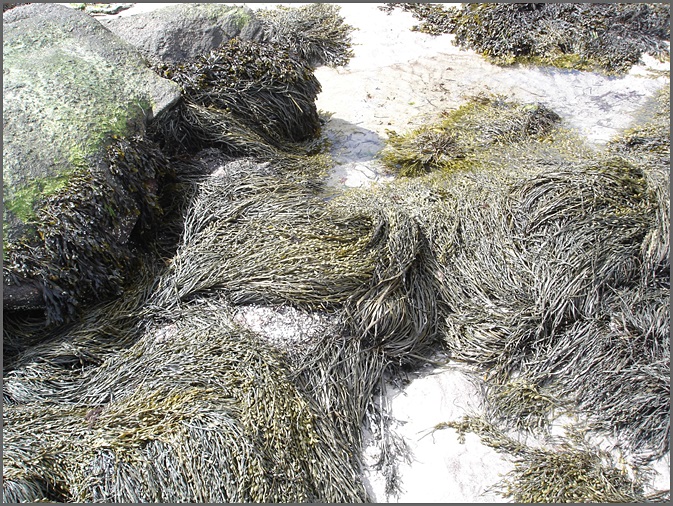
The top of the rocks are covered with
iced over water holes and snow,
making it a bit treacherous.
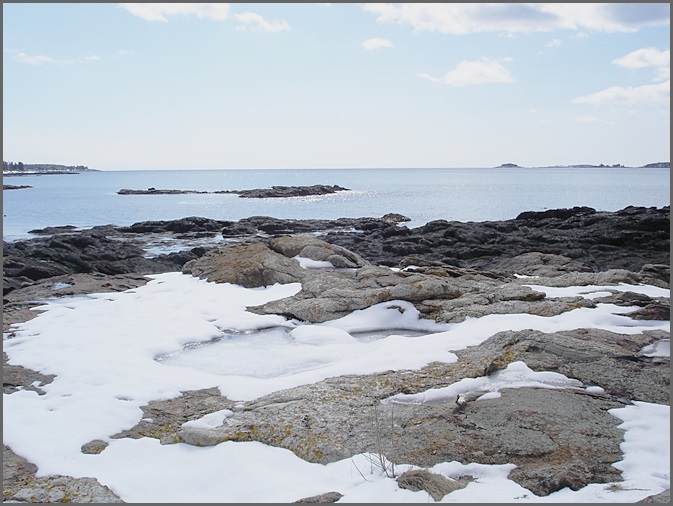
A mussel shell on the rocks,
with attached water weeds and lichen,
almost matches them.
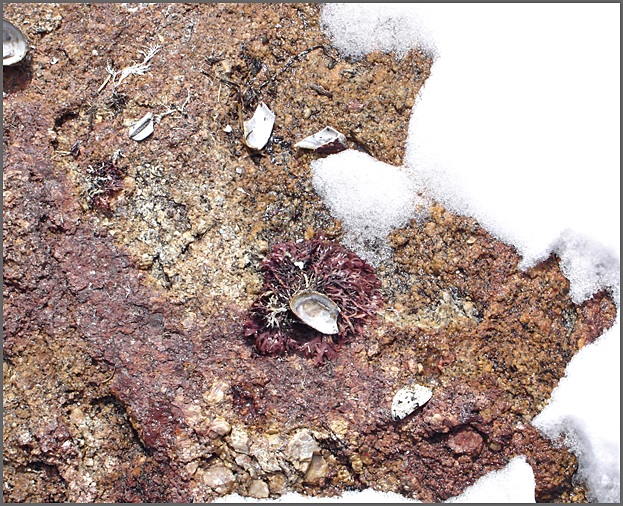
Heading back down the rocks
the beach is spread out before us.
The different colored sands make lovely patterns.
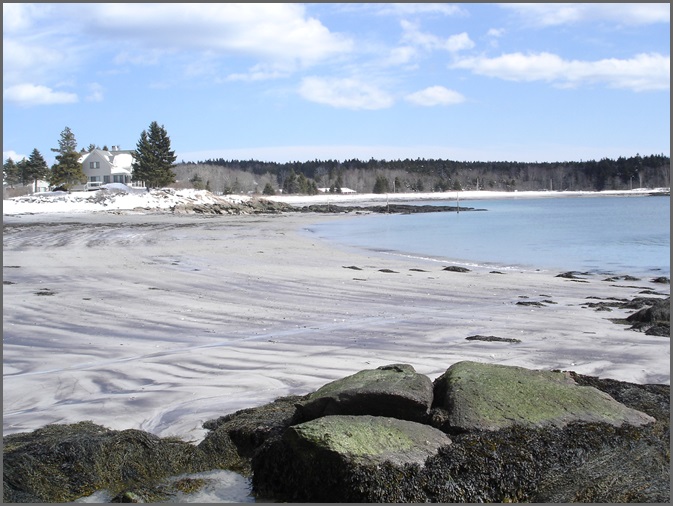
The water is very clear,
the colors almost Caribbean.
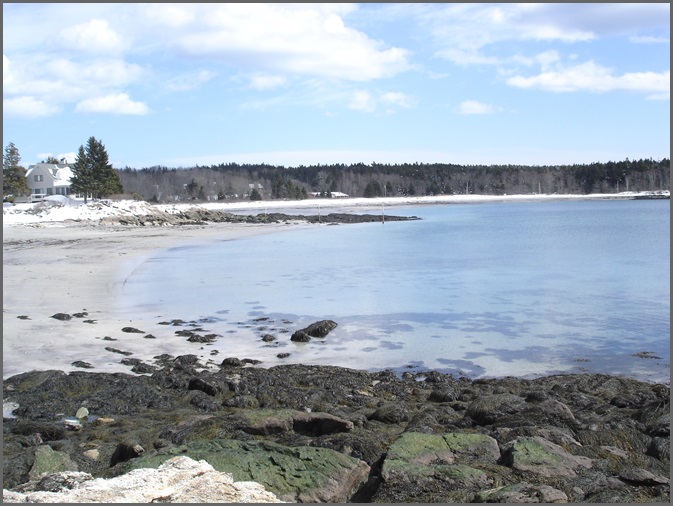
We head across the beach,
near the water line.
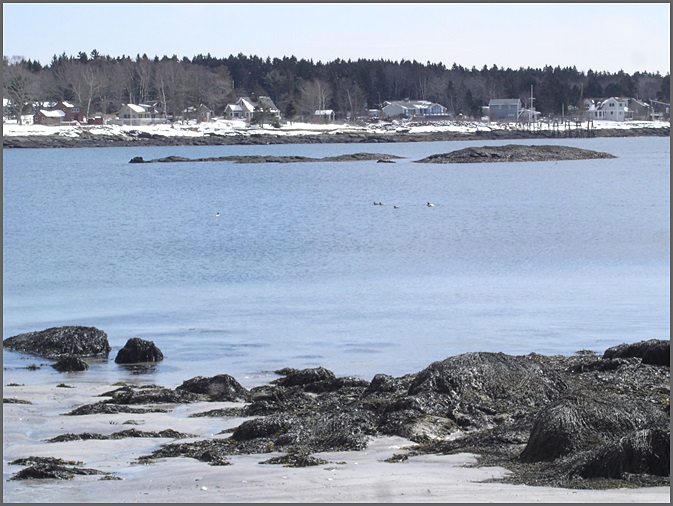
Spot catches sight of the ducks in the water.
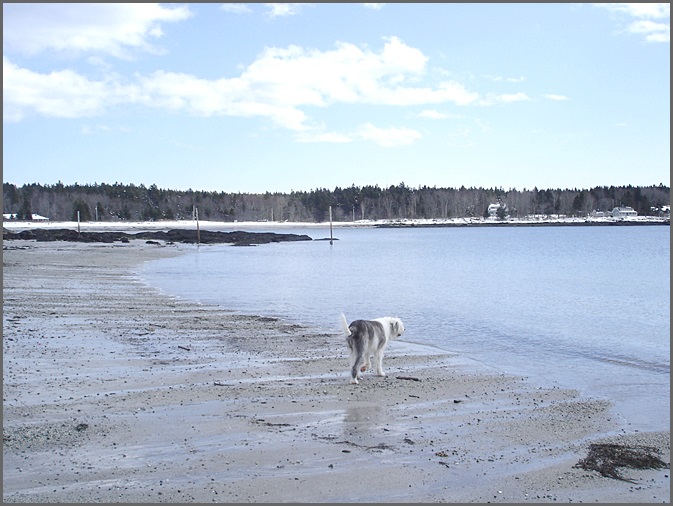
But decides to not give them
the satisfaction of taunting him.
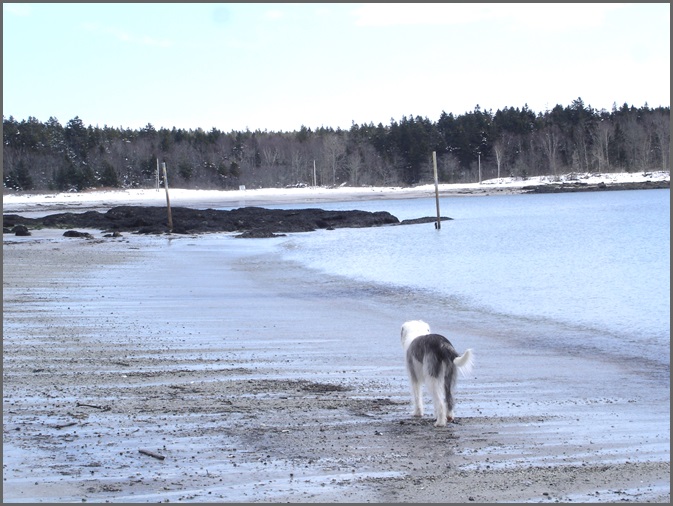
As we go along I spy a lone clam shell,
the shell usually seen,
rather than the mussels.
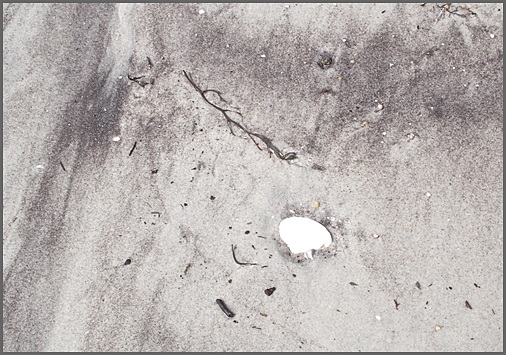
Further on lays a very small,
but very blue mussel shell.
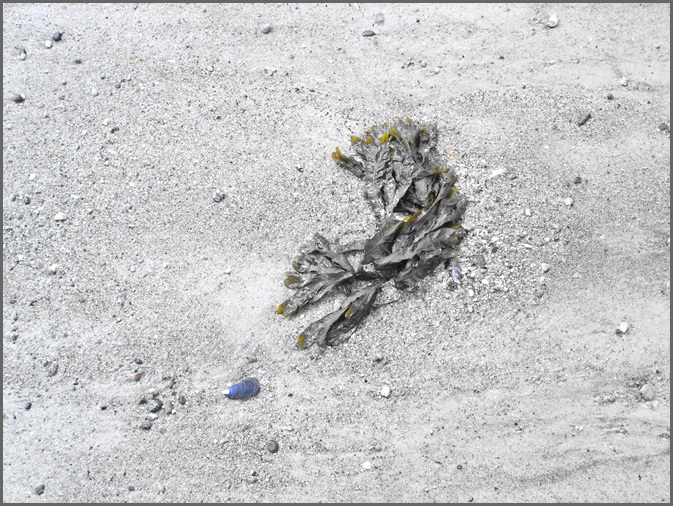
We climb back over the rocks
that separate the cove from the beach.
The beach seems so wide!
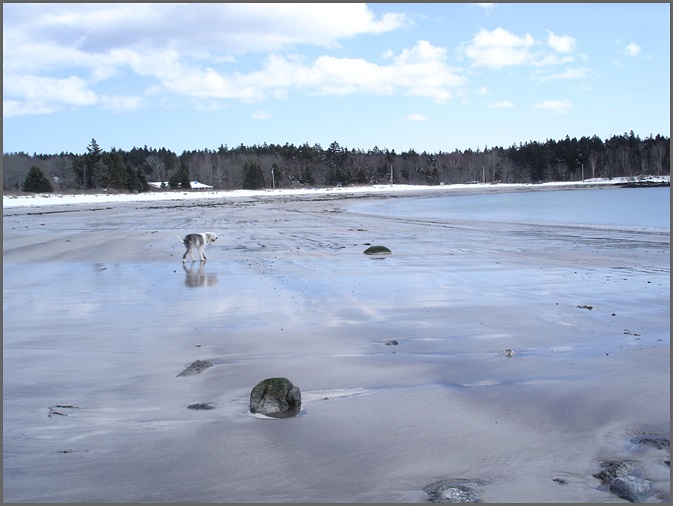
A pale violet mussel shell,
with a small one carefully perched on it,
reminds one of all the others back in the cove.
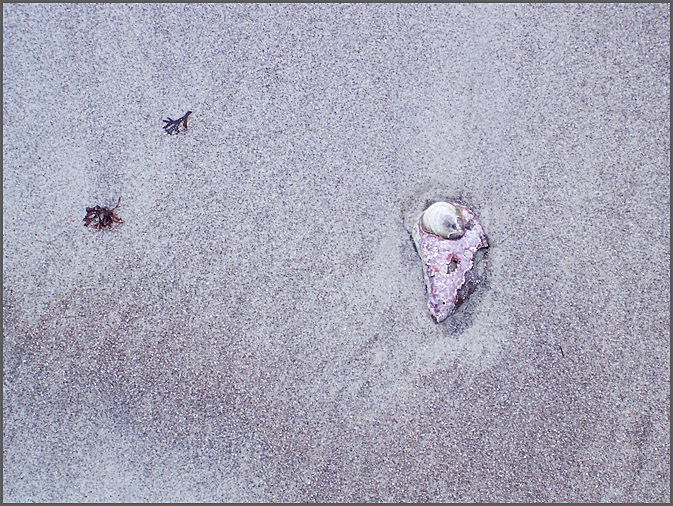
We head down the beach.
A breeze freshens off of the water.
And then there is the small sound of a lap of water.
The tide has turned.
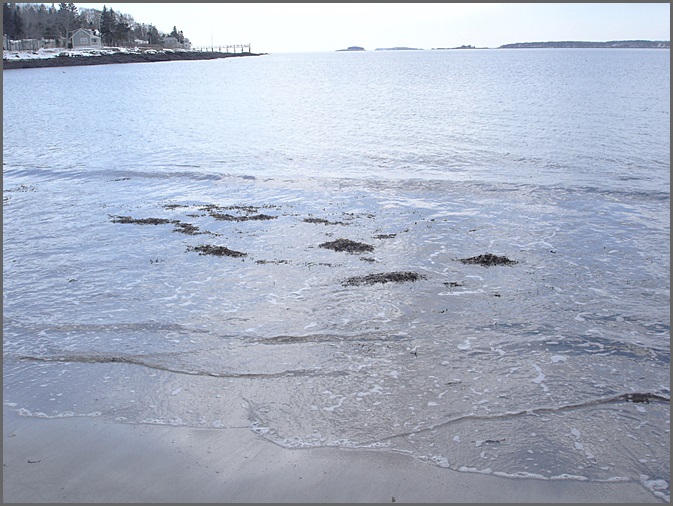
Walking along I see a broken razor clam.
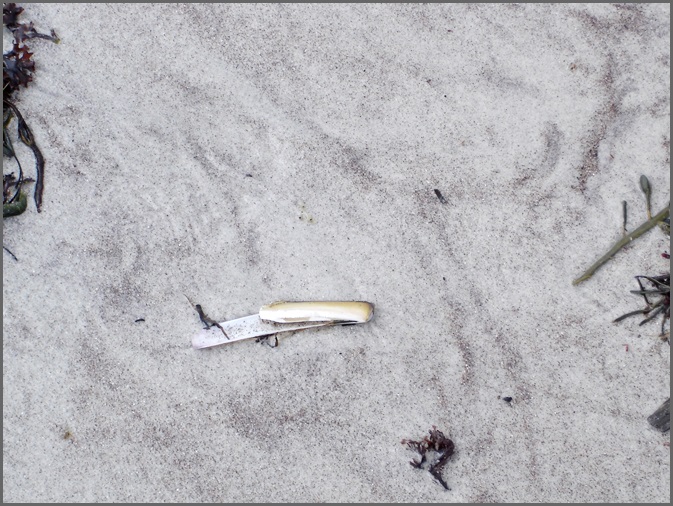
The bright green of a piece of seaweed stands out from all the neutral colors.
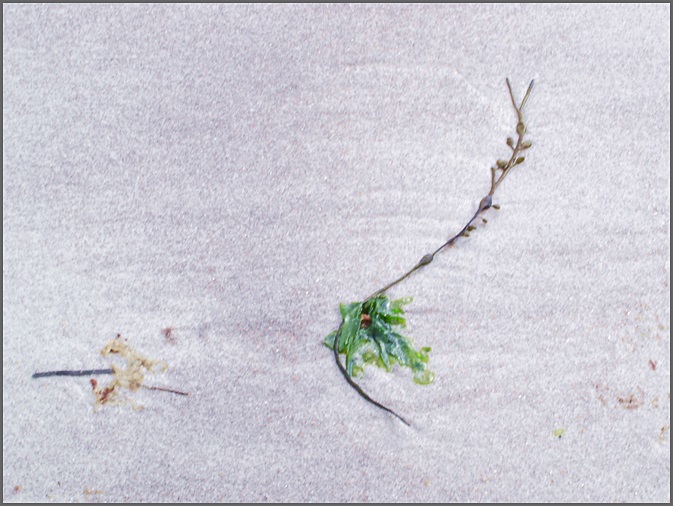
A piece of ribbon seaweed lays partially buried in the sand.
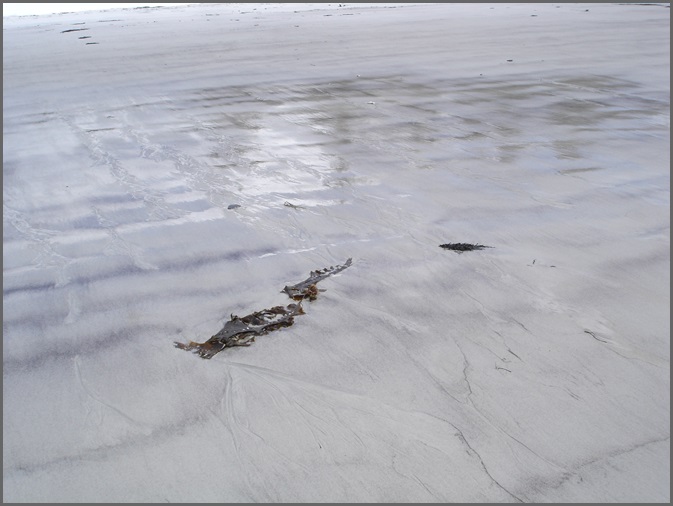
The stream bed at the corner of the beach,
changes weekly.
Today it is wide, and shallow.
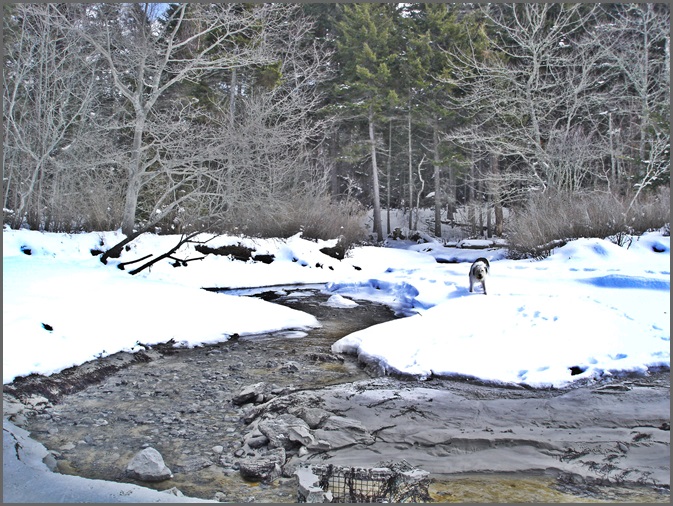
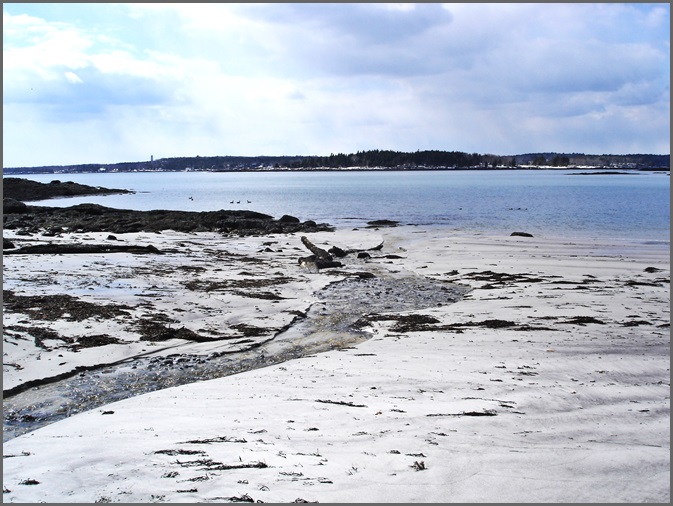
A lobster trap, broken from it’s mooring,
has washed up,
and lies half buried in the snow and sand.
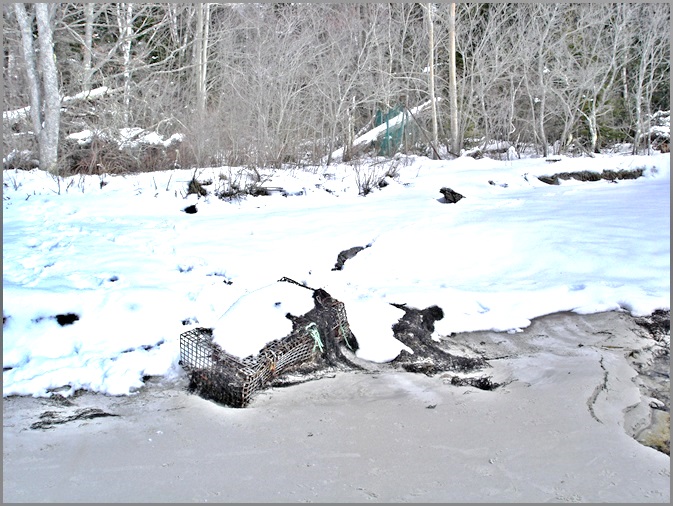
The huge piled up banks of seaweed,
swept in during the harsh storms of February,
have all but disappeared.
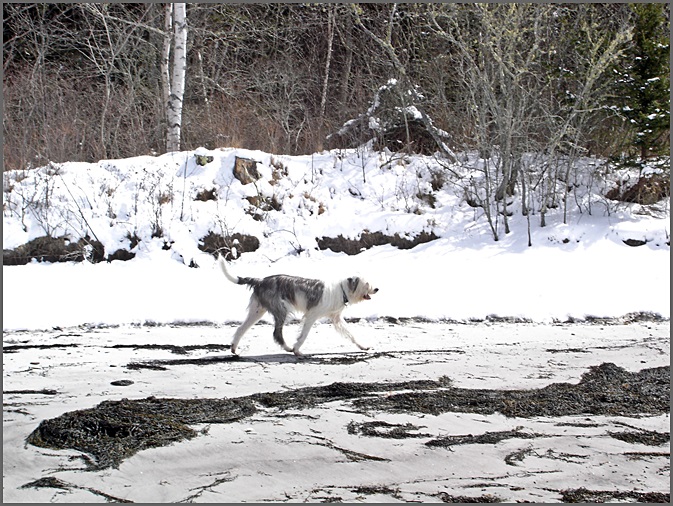
Spot heads down the left hand side of the beach.
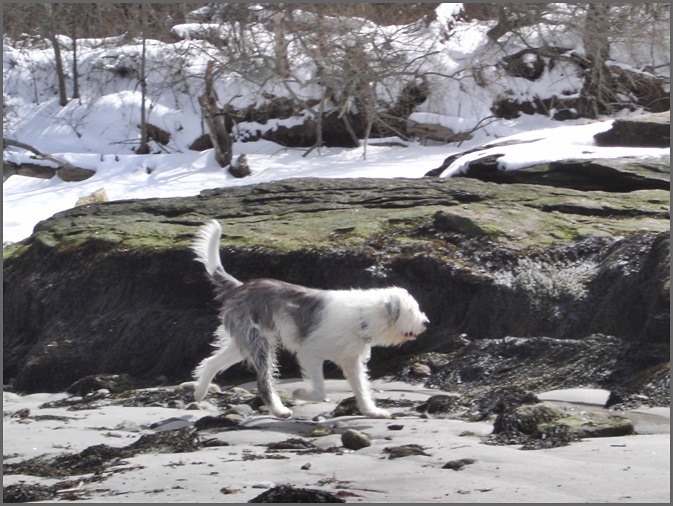
There are birds near the shore.
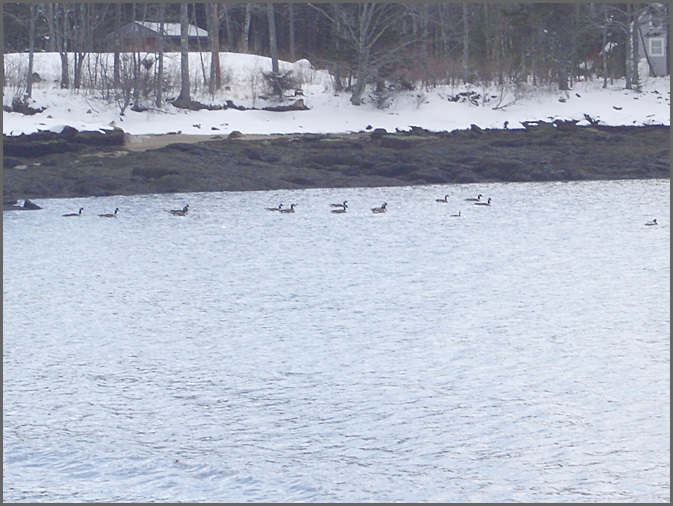
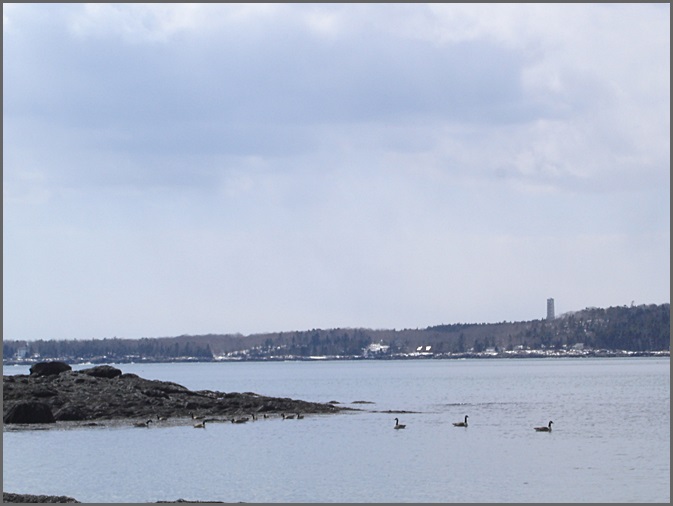
A lone gull,
perched on a rock,
attracts Spots attention.
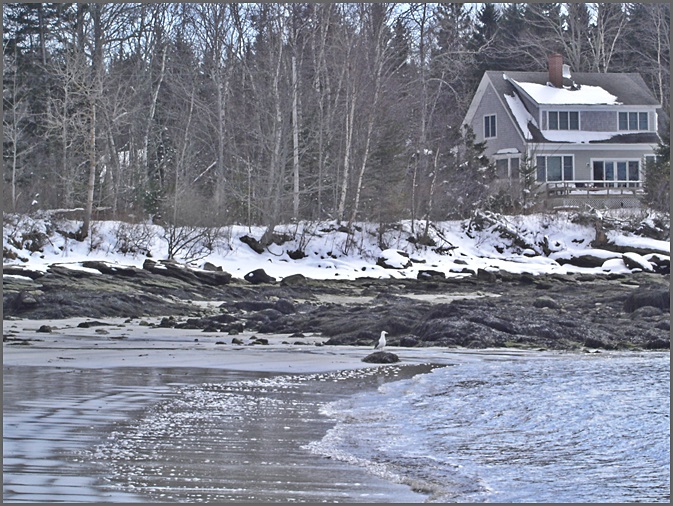
The wind on this end of the beach
is strong and cold.
I am glad I have my three layers of clothing!
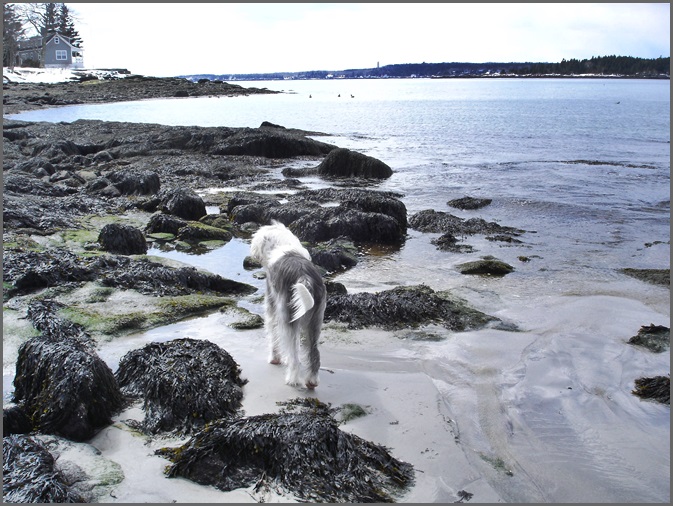
We start back,
and find some gull’s tracks in the sand.
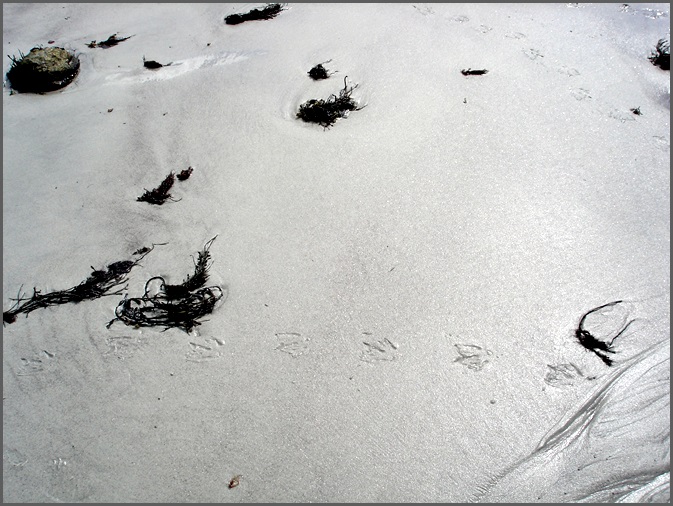
At the acute turn of the beach
the colors of the water are very unusual
with clear pale blues and soft golden hues.
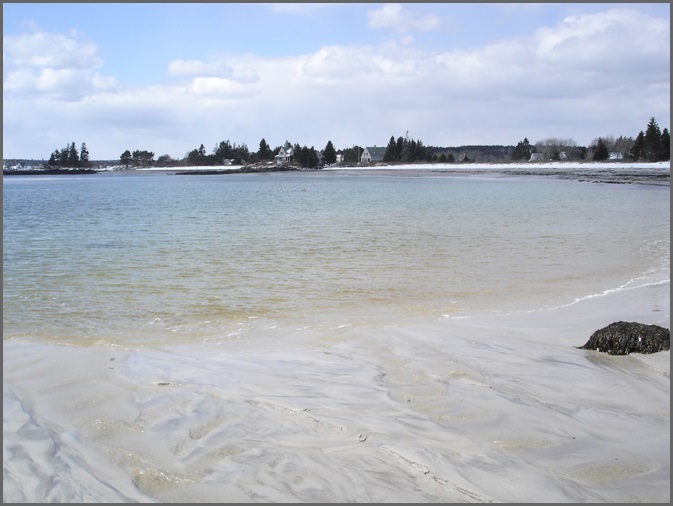
Walking back,
the glare from the sun,
makes it difficult to see Spot.
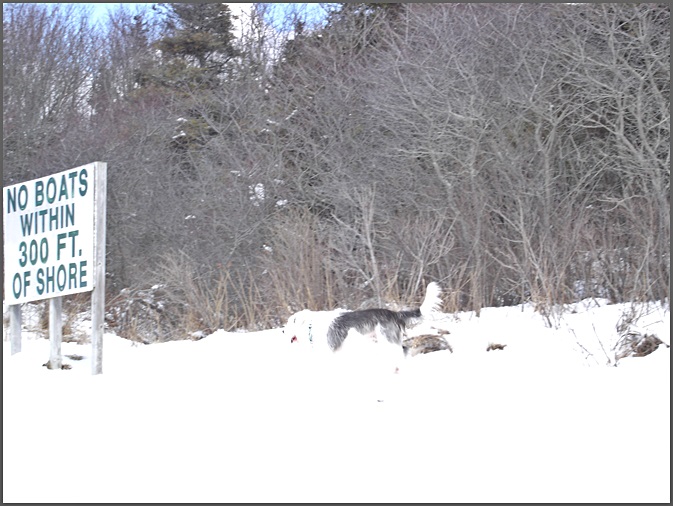
Up near the stream,
that formed when the marsh flooded this winter,
are more of the patterns from the freezing and thawing of the sand.
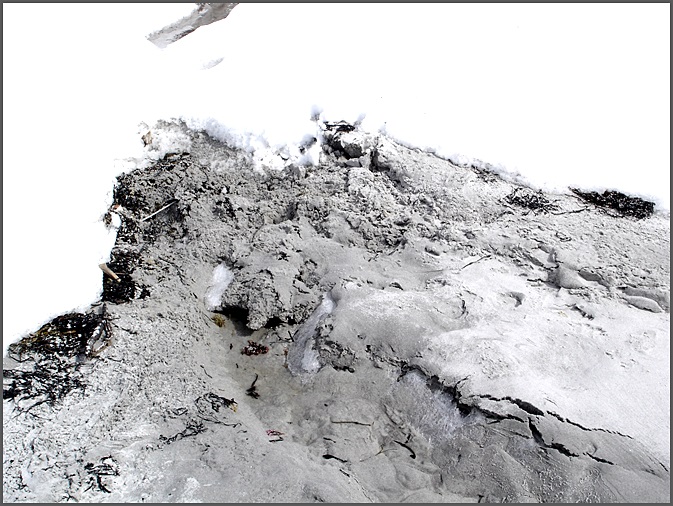
A lone slipper shell lies on the beach.
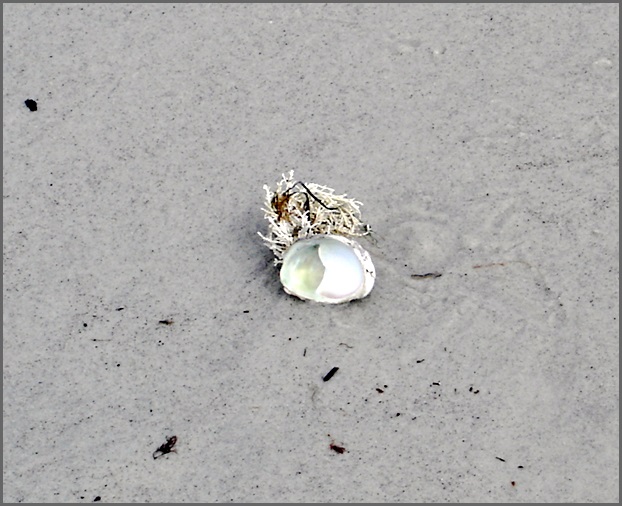
A clump of seaweed is tangled
with things that have survived the winter-
oak leaves and acorns are seen.
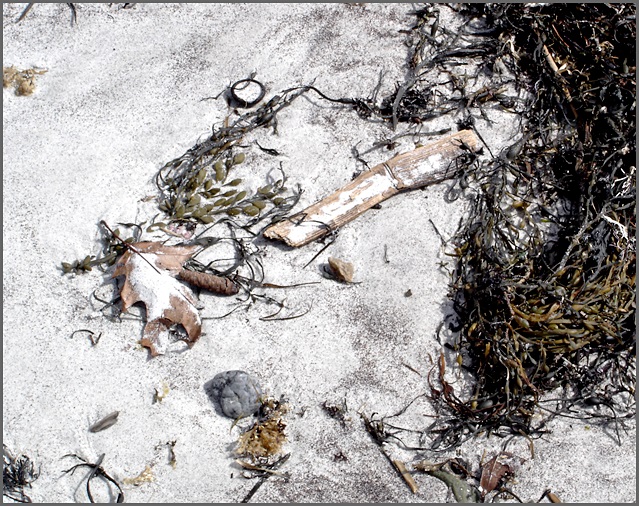
We make our second pass down the right hand side of the beach.
The angle of the sun lights up all of the mica in the sand.
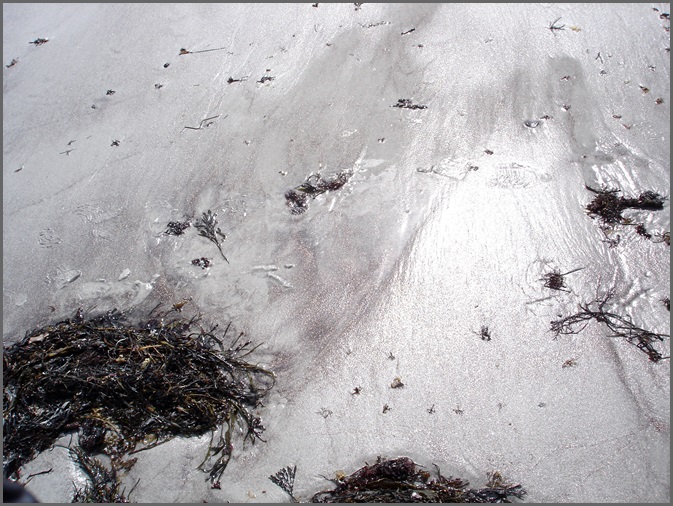
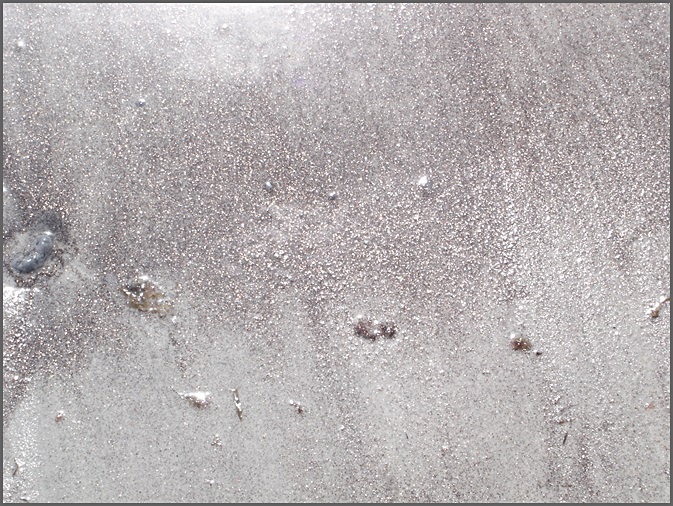
Every hollow around every stone and shell
refracts the light.
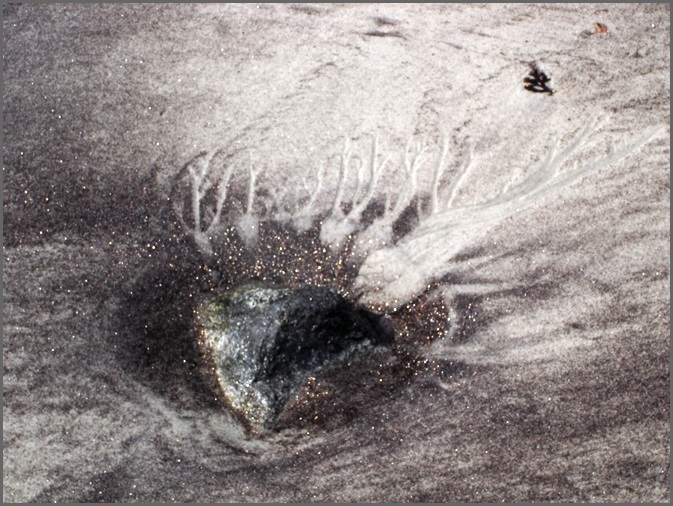
The sand patterns are made even more intriguing and dramatic
by the gleam and glitter of the mica.
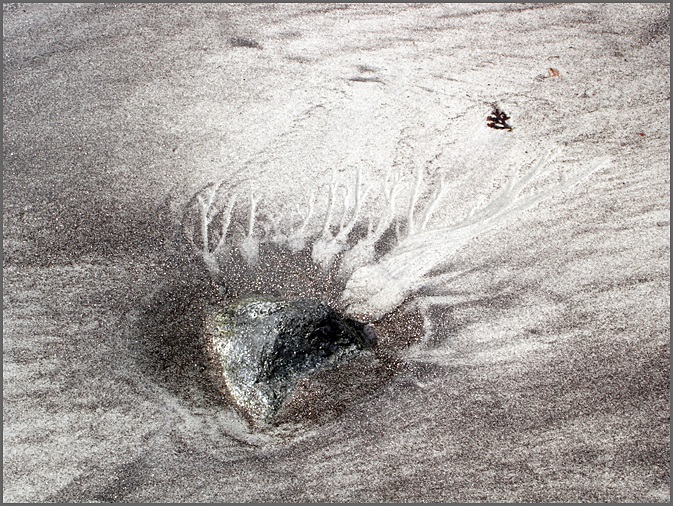
At the end of the beach Spot stops and looks out.
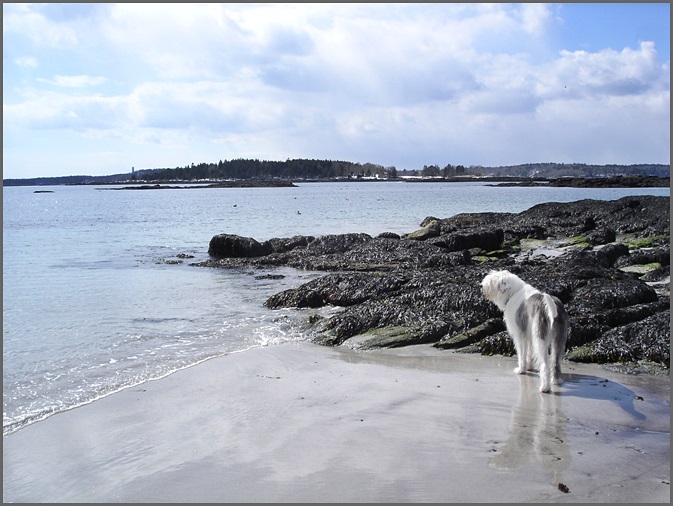
The beach curves ahead of us as we head back.
The water pale and pretty.
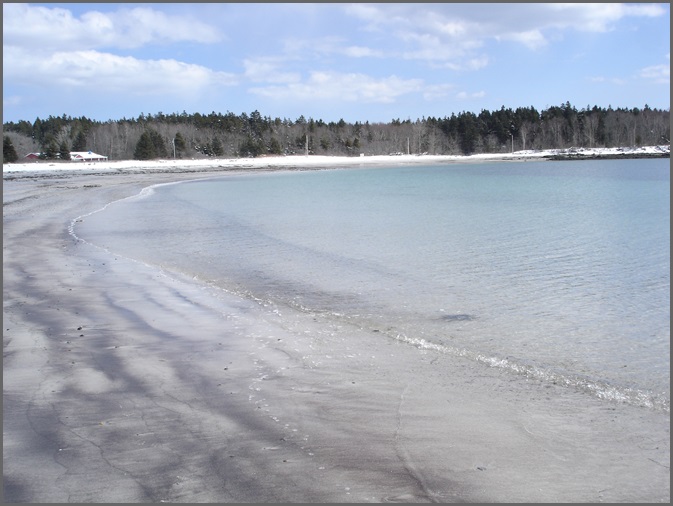
Behind the colors are deep and rich.
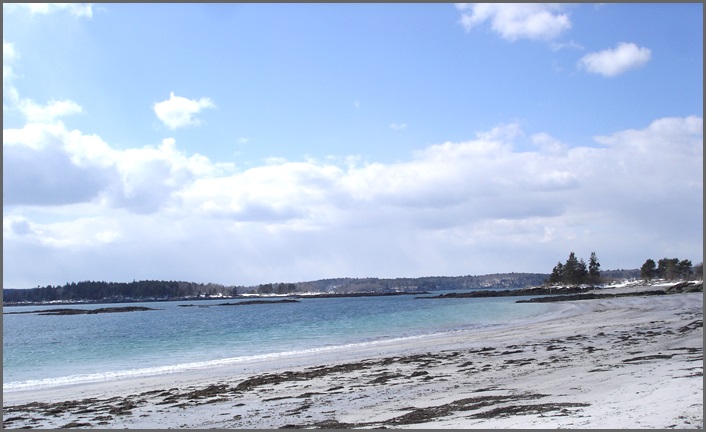
As we leave
snow, sand, and water
sparkle in the sun.
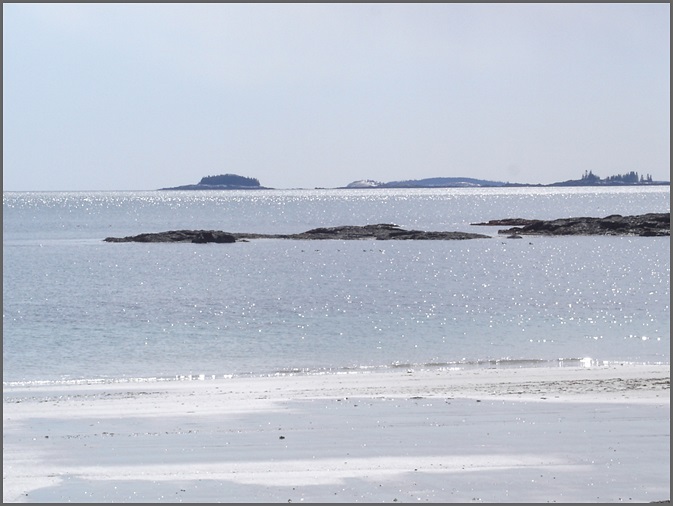
____________________________
